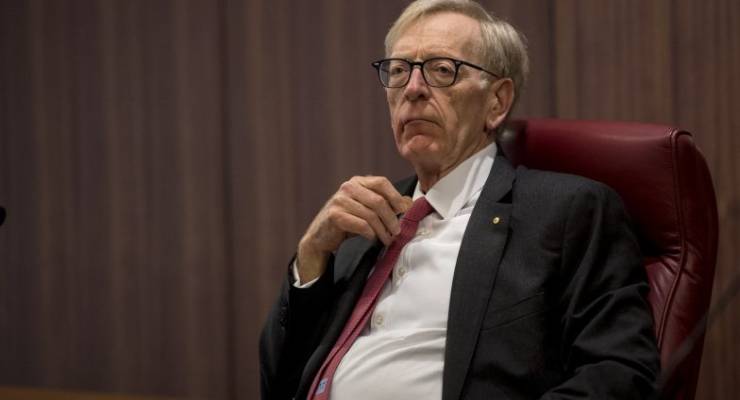
Most royal commissions are too late and desperately needed. They’re called as a last resort because of systemic failure in established processes and institutions, the kind that can’t be fixed within the existing system.
Or, at least, they used to be. Increasingly, royal commissions are called for political reasons, to provide an out for politicians who have failed to do their jobs, who want to deflect responsibility, who want to show how much they care.
Daniel Andrews’ royal commission into Crown might be way too late, but it’s probably the most superfluous inquiry in history.
The Bergin inquiry into Crown in NSW has served the purpose of a royal commission: the system had failed; Victorian and West Australian gambling regulators were prevented from doing any kind of effective job by politicians who enjoyed hundreds of thousands of dollars in Crown donations.
Bergin, with help from the outstanding journalism of Nick McKenzie and the investigations into money laundering of Austrac, did the necessary work. Crown’s governance is a mess and it is unfit to hold a casino licence.
So if Andrews’ royal commission is unnecessary, that means it is political — called to evade the consequences of his government’s longstanding close relationship with Crown, which has handed the Victorian ALP nearly $180,000 in donations over the last decade.
At first blush, it seems Crown is facing a regulatory moment — that point when a politically powerful and dominant company or industry so abuses the power it enjoys as a result of controlling politicians that the politicians cannot resist outraged community sentiment and regulate those they once pandered to.
But the lesson from another such moment is that they don’t necessarily last. Malcolm Turnbull and Scott Morrison called a banking royal commission for political reasons — to head off a revolt among Nationals and to prevent Labor from continuing to harvest popular disaffection with the big banks.
But it turned out to be desperately needed as it revealed systemic misconduct and wrongdoing across the financial industry and hopelessly weak regulators. Chastened by the huge pile of filthy laundry Kenneth Hayne uncovered, Morrison and Treasurer Josh Frydenberg swore blind they’d implement nearly all of Hayne’s recommendations.
It took less than two years — and the implementation of barely one-third of Hayne’s recommendations — for the government to reverse course, perhaps helped by the $463,000 in contributions the finance industry provided to the Coalition in 2019-20.
Think back to 2018 and the shocking revelations, day after day, of the royal commission, and the parade of executives being exposed as having overseen outrageous rorts and gouges, and of directors and chairs who said and did nothing about it — not to mention the stern words of Scott Morrison and Josh Frydenberg in 2019 about how devoted the government was to putting in place what Hayne urged they do.
Despite all that, it took less than two years for all that to be forgotten and for business as usual — politicians looking after banks — to be restored.
Don’t think the same can’t happen with Crown. Several years hence, why won’t the same cosy relationship between the company and the politicians it has funded so lavishly over recent years re-emerge?
Such relationships are a product of our political system, in which large corporations through the use of political donations and the employment of former politicians and political staffer exert huge sway over the governments supposedly keeping them in check.
Until the system changes, why will the outcomes change?








Time for radical transparency principles to be enacted and put in place at all levels of government, business and community.
Anyone who was shocked by what came out of the banking RC just wasn’t reading the papers of the day. Most of it had been revealed over years, only the politicians seemed to be shocked, shocked, by what was going on there.
Sure, it may have been more widespread than reported, but when an entire industry had been corrupted, find out that it was a bit bigger than originally considered was not really ‘shocking’.
The lack of follow up by the media on the banking RC shows that it was mostly theatre – sure a few heads rolled but we’ll be back to being another RC in 5-10 years. Then we’ll once again be collectively shocked, a few heads will roll, and it’ll be soon forgotten.
I’m not sure why the lack of action on the banking RC isn’t headline news given that’s how things get better, yet the stories of outrageous behaviour were, even though they amount to little more than historical anecdotes.
Now that gambling is australia wide, and I’m talking of the pokies, not Internet gambling, there is no way any govt. is going to lose good income. Employ thousands of people, do provide a social outing, and do cause awful consequences for addicted gamblers. Doubt if there is any casino (gambling venue) worldwide that is not run without “bribes” “donations” whatever word is applicable, to maintain their profits or shady processes. Fact of life. Yes, let’s have another RC – public will be appeased, believing evil/dishonest practices have been curtailed.
It seems in most organizations where employers and employees have committed crimes it’s all about the wrong “culture” . Individuals therefore shouldn’t be held accountable and/or prosecuted. Duty of care?